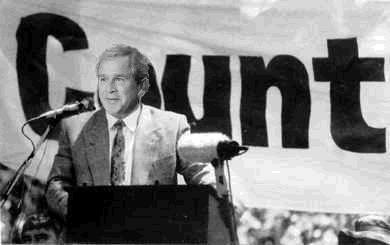It’s clear that China-Japan relations are in a truly desperate state these days – and doesn’t look like improving anytime soon, if ever. China and South Korea have both taken a very hardline stance over, for example, the Yakasuni Shrine visits and it looks likely that Koizumi will be succeeded by an even more right-wing leader in the future.
It’s no surprise then, that Mr. Cui Tiankai, the head of the Chinese foreign ministry’s Asian affairs department, recently said that it was “impossible” for Premier Wen Jiabao to meet with Prime Minister Koizumi at the next ASEAN summit in December. Not only will a China-South Korea-Japan summit not take place for the first time in 6 years, but the rift is also making it almost impossible to set an agenda for the larger ASEAN meeting. The same goes for the ongoing territorial disputes involving oil and gas deposits in the East China Sea.
Despite the fact that relations between Asia’s 3 largest economies are clearly undermining broader regional co-operation, the U.S. ambassador to Japan, Mr. Tom Schieffer, also said yesterday that the U.S. was intending to ‘wash its hands’ of the poisonous China-Japan relationship, telling the two countries to sort it out between themselves:
“We are not the last arbiter of every dispute. I don’t think we have a direct role to play but the U.S. hopes that Japan and China can work out their differences. It’s important to the whole region that people get along out here. One of the reasons (the U.S.-Japan relationship) is extraordinary is that we were able to put our differences in the past behind us. We were able look forward. Sixty years is a long time and history didn’t stop 60 years ago, history has continued. And in that 60 years Japan has been a model international citizen people should take that into account when they try to resolve this whole historical issue.”
Although many people might agree with ambassador Schieffer’s comments, the chances of China and Japan sorting out anything remains remote. It’s also arguable that the current China-Japan rift provides the U.S. with it’s very own ‘Great Britain in Asia’ by pushing Japan even more closely to the U.S.
This was almost certainly why the ambassador described U.S. foreign policy in Asia as “the untold success story of the Bush Administration”. Pointing to the growing strategic trilateral relationship between the U.S., Japan and Australia that will almost certainly become a ‘linchpin of regional security’. It will also be interesting to see just how closely Taiwan will fit into this relationship. While many might baulk at the above quote about U.S. foreign policy in Asia, it’s fair to say that the U.S. is enjoying considerably more diplomatic success in Asia than the rest of the world.


Comments